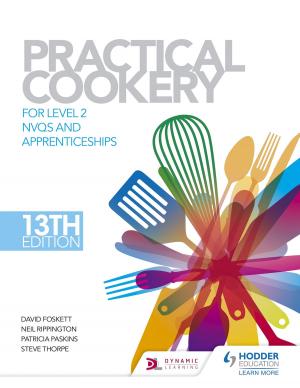Enquiring History: The Wars of the Roses: England 1450-1485
Nonfiction, History, Medieval, British, Reference & Language, Study Aids| Author: | Ian Dawson | ISBN: | 9781444179248 |
| Publisher: | Hodder Education | Publication: | August 10, 2012 |
| Imprint: | Hodder Education | Language: | English |
| Author: | Ian Dawson |
| ISBN: | 9781444179248 |
| Publisher: | Hodder Education |
| Publication: | August 10, 2012 |
| Imprint: | Hodder Education |
| Language: | English |
Enquiring History: It makes you think!
The OFSTED report on school history suggests that the current generation of A Level students have been poorly served by exam-based textbooks which spoon-feed students while failing to enthuse them or develop deeper understandings of studying History.
The Schools History Project has risen to this challenge with a new series for the next generation. Enquiring History is SHP's fresh approach to Advanced Level History that aims:
- To motivate and engage readers
- To help readers think and gain independence as learners
- To encourage enquiry, and deeper understanding of periods and the people of the past
- To engage with current scholarship
- To prepare A Level students for university
Key features of each Student book
- Clear compelling narrative - books are designed to be read cover to cover
- Structured enquiries - that explore the core content and issues of each period
- Feature panels between enquiries provide context, overview, and extension
- Full colour illustrations throughout
This volume
The Wars of the Roses covers the political history of England from 1450-1485. The content is gathered into ten discrete enquiries (for example
- Why was London full of rebels in 1450?
- Was Edward IV a success second time round?
- How certain can we be about why Richard III took the crown?)
which together help examine the fundamental paradox of this period: People at the time did not want civil war, and for the nobles loyalty to the monarch was all important...yet wars happened and kings were deposed. So the central question is If loyalty was so important and people in England did not want civil war, why did the Wars of the Roses happen?
A question worth answering!
Web-based support includes
- lesson planning tools and activities for teachers
- Dynamic eBooks for whole class teaching or individual student reading
- Exam advice for each specification
Check out this sample chapter to see what you're missing.
Enquiring History: It makes you think!
The OFSTED report on school history suggests that the current generation of A Level students have been poorly served by exam-based textbooks which spoon-feed students while failing to enthuse them or develop deeper understandings of studying History.
The Schools History Project has risen to this challenge with a new series for the next generation. Enquiring History is SHP's fresh approach to Advanced Level History that aims:
- To motivate and engage readers
- To help readers think and gain independence as learners
- To encourage enquiry, and deeper understanding of periods and the people of the past
- To engage with current scholarship
- To prepare A Level students for university
Key features of each Student book
- Clear compelling narrative - books are designed to be read cover to cover
- Structured enquiries - that explore the core content and issues of each period
- Feature panels between enquiries provide context, overview, and extension
- Full colour illustrations throughout
This volume
The Wars of the Roses covers the political history of England from 1450-1485. The content is gathered into ten discrete enquiries (for example
- Why was London full of rebels in 1450?
- Was Edward IV a success second time round?
- How certain can we be about why Richard III took the crown?)
which together help examine the fundamental paradox of this period: People at the time did not want civil war, and for the nobles loyalty to the monarch was all important...yet wars happened and kings were deposed. So the central question is If loyalty was so important and people in England did not want civil war, why did the Wars of the Roses happen?
A question worth answering!
Web-based support includes
- lesson planning tools and activities for teachers
- Dynamic eBooks for whole class teaching or individual student reading
- Exam advice for each specification
Check out this sample chapter to see what you're missing.















